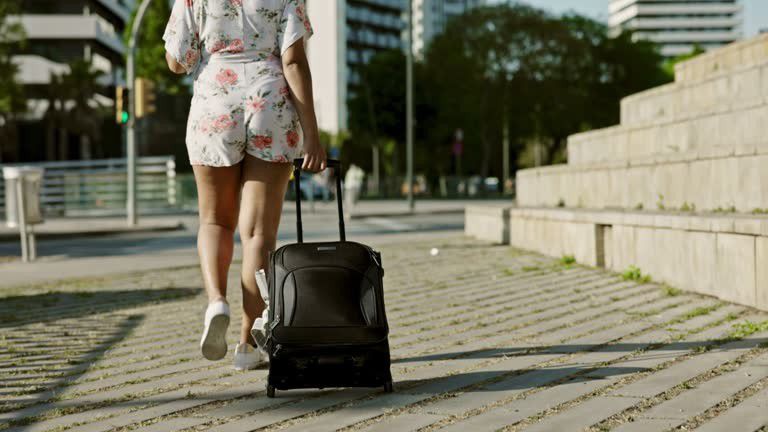
Travelling across Ghana can be an exciting yet unpredictable experience, with road conditions, transport options, and unforeseen delays playing a crucial role in the journey. Whether you're a local commuter or a first-time visitor, understanding the nuances of Ghana’s transport system can help you avoid unnecessary stress.
From choosing the right mode of transport to navigating police checkpoints and handling unexpected delays, here’s what every traveller needs to know before setting off on the road.
1. Road conditions vary
Major highways, such as Accra-Kumasi and Accra-Cape Coast, are generally in good condition.
READ MORE: YouTube set to surpass Disney as the world’s top media giant in 2025
Rural and less-travelled roads can be rough, dusty, or even impassable during the rainy season.
Night driving is discouraged due to poor road lighting, unexpected potholes, and stray animals.
2. Transport options
Trotros (minibuses): The most affordable choice but often overcrowded and slow.
Intercity STC, VIP, OA: Comfortable, air-conditioned buses ideal for long-distance travel.
Shared taxis: Faster than trotros but more expensive.
Private hire: Offers the most flexibility but at a higher cost.
3. Timings and Delays
Departure times can be unpredictable, as most buses wait until they are full before setting off.
It is best to travel early to avoid traffic and the risks of night journeys.
Fridays and Sundays are peak travel days—expect longer waiting times.
4. Book in advance (If Possible)
Popular routes, such as Accra-Kumasi, fill up quickly.
VIP and STC allow phone or in-person bookings.
Always carry your ticket and a form of identification, particularly when travelling with STC.
5. Pack light but be prepared
Essentials include water, snacks, tissues, a power bank, and hand sanitiser.
A scarf or hoodie is advisable, as air-conditioned buses can get quite cold.
Carry a valid ID, especially if passing through checkpoints.
6. Police checkpoints are common
Remain calm and respectful when stopped.
Do not offer bribes—if asked for money, politely request clarification on the alleged offence.
Always have a valid form of identification, such as a Ghana Card or passport.
7. Cash is essential
Most lorry stations and roadside vendors do not accept mobile money or card payments.
Keep small denominations handy for fares, food, or unexpected expenses.
8. Weather can impact travel
Heavy rains may lead to delays, flooding, or road closures.
During Harmattan (December–February), visibility can be poor due to dust.
9. Know your drop-off point
READ MORE: Shatta Wale reacts to rumours Black Sherif dissed him on 'Iron Boy'
Some towns have multiple bus stations—confirm your correct stop in advance.
If someone is picking you up, notify them early to avoid confusion.
10. Mobile network and internet access may be limited
In remote areas, MTN offers the most reliable signal.
Download offline maps or take screenshots of directions before setting off.
Conclusion
Being well-prepared for road travel in Ghana can make all the difference between a smooth journey and a frustrating experience. By considering factors such as road conditions, travel timings, and payment options, you can minimise delays and avoid common pitfalls. With these essential travel tips in mind, you’ll be better equipped to navigate Ghana’s roads safely and efficiently—ensuring a more enjoyable trip, whether for business or leisure.
Read Full Story








![‘I’m a Supplier’- Interdicted police officer admits selling opioids to youth [Video]](https://sportal365images.com/process/smp-images-production/pulse.com.gh/05052025/fc3b0efb-cfe0-47e6-9110-1dafcd7a834d.png)






Facebook
Twitter
Pinterest
Instagram
Google+
YouTube
LinkedIn
RSS